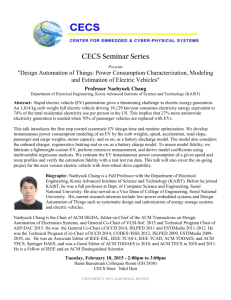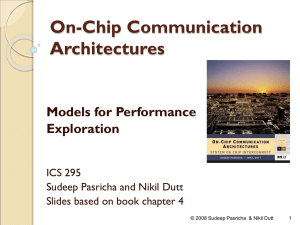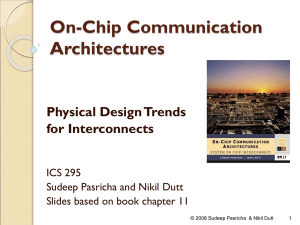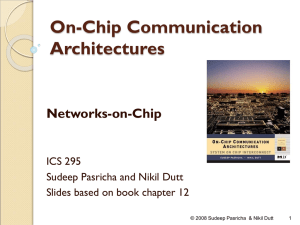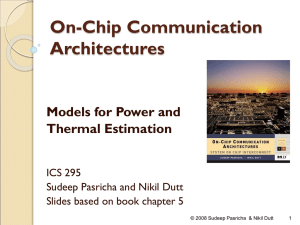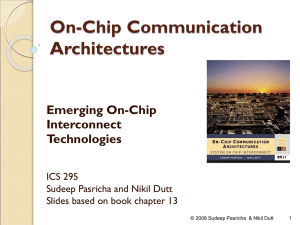Towards Sentient Chips: Self-Awareness through On-Chip Sensemaking
advertisement
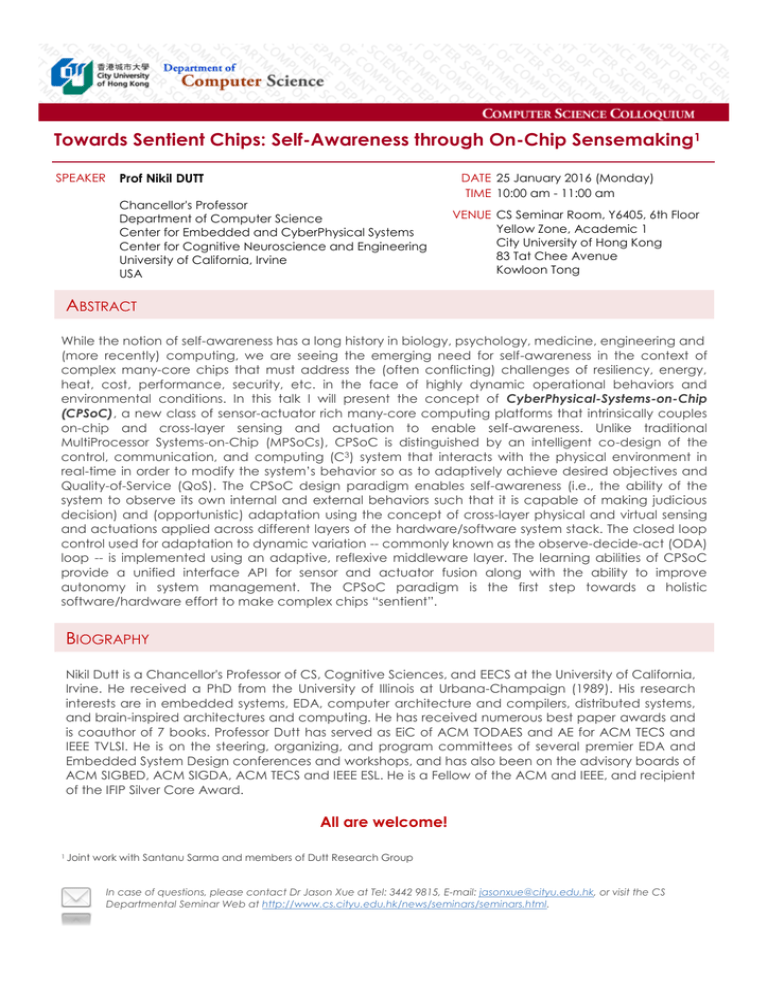
Towards Sentient Chips: Self-Awareness through On-Chip Sensemaking1 SPEAKER Prof Nikil DUTT Chancellor's Professor Department of Computer Science Center for Embedded and CyberPhysical Systems Center for Cognitive Neuroscience and Engineering University of California, Irvine USA DATE 25 January 2016 (Monday) TIME 10:00 am - 11:00 am VENUE CS Seminar Room, Y6405, 6th Floor Yellow Zone, Academic 1 City University of Hong Kong 83 Tat Chee Avenue Kowloon Tong ABSTRACT While the notion of self-awareness has a long history in biology, psychology, medicine, engineering and (more recently) computing, we are seeing the emerging need for self-awareness in the context of complex many-core chips that must address the (often conflicting) challenges of resiliency, energy, heat, cost, performance, security, etc. in the face of highly dynamic operational behaviors and environmental conditions. In this talk I will present the concept of CyberPhysical-Systems-on-Chip (CPSoC), a new class of sensor-actuator rich many-core computing platforms that intrinsically couples on-chip and cross-layer sensing and actuation to enable self-awareness. Unlike traditional MultiProcessor Systems-on-Chip (MPSoCs), CPSoC is distinguished by an intelligent co-design of the control, communication, and computing (C3) system that interacts with the physical environment in real-time in order to modify the system’s behavior so as to adaptively achieve desired objectives and Quality-of-Service (QoS). The CPSoC design paradigm enables self-awareness (i.e., the ability of the system to observe its own internal and external behaviors such that it is capable of making judicious decision) and (opportunistic) adaptation using the concept of cross-layer physical and virtual sensing and actuations applied across different layers of the hardware/software system stack. The closed loop control used for adaptation to dynamic variation -- commonly known as the observe-decide-act (ODA) loop -- is implemented using an adaptive, reflexive middleware layer. The learning abilities of CPSoC provide a unified interface API for sensor and actuator fusion along with the ability to improve autonomy in system management. The CPSoC paradigm is the first step towards a holistic software/hardware effort to make complex chips “sentient”. BIOGRAPHY Nikil Dutt is a Chancellor's Professor of CS, Cognitive Sciences, and EECS at the University of California, Irvine. He received a PhD from the University of Illinois at Urbana-Champaign (1989). His research interests are in embedded systems, EDA, computer architecture and compilers, distributed systems, and brain-inspired architectures and computing. He has received numerous best paper awards and is coauthor of 7 books. Professor Dutt has served as EiC of ACM TODAES and AE for ACM TECS and IEEE TVLSI. He is on the steering, organizing, and program committees of several premier EDA and Embedded System Design conferences and workshops, and has also been on the advisory boards of ACM SIGBED, ACM SIGDA, ACM TECS and IEEE ESL. He is a Fellow of the ACM and IEEE, and recipient of the IFIP Silver Core Award. All are welcome! 1 Joint work with Santanu Sarma and members of Dutt Research Group In case of questions, please contact Dr Jason Xue at Tel: 3442 9815, E-mail: jasonxue@cityu.edu.hk, or visit the CS Departmental Seminar Web at http://www.cs.cityu.edu.hk/news/seminars/seminars.html.


